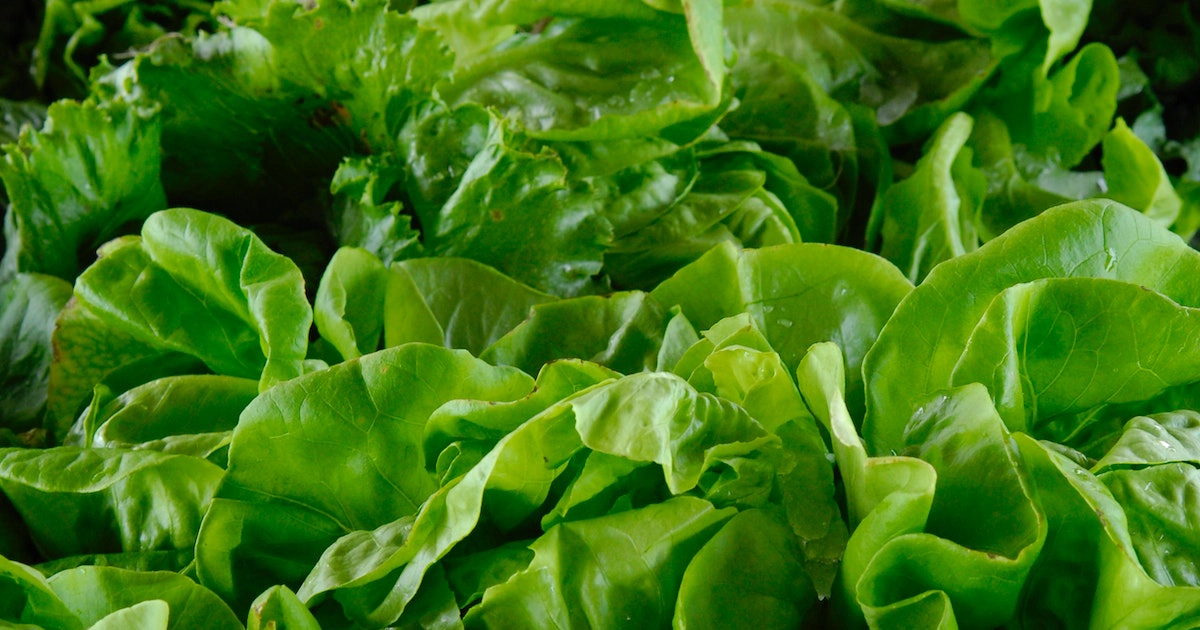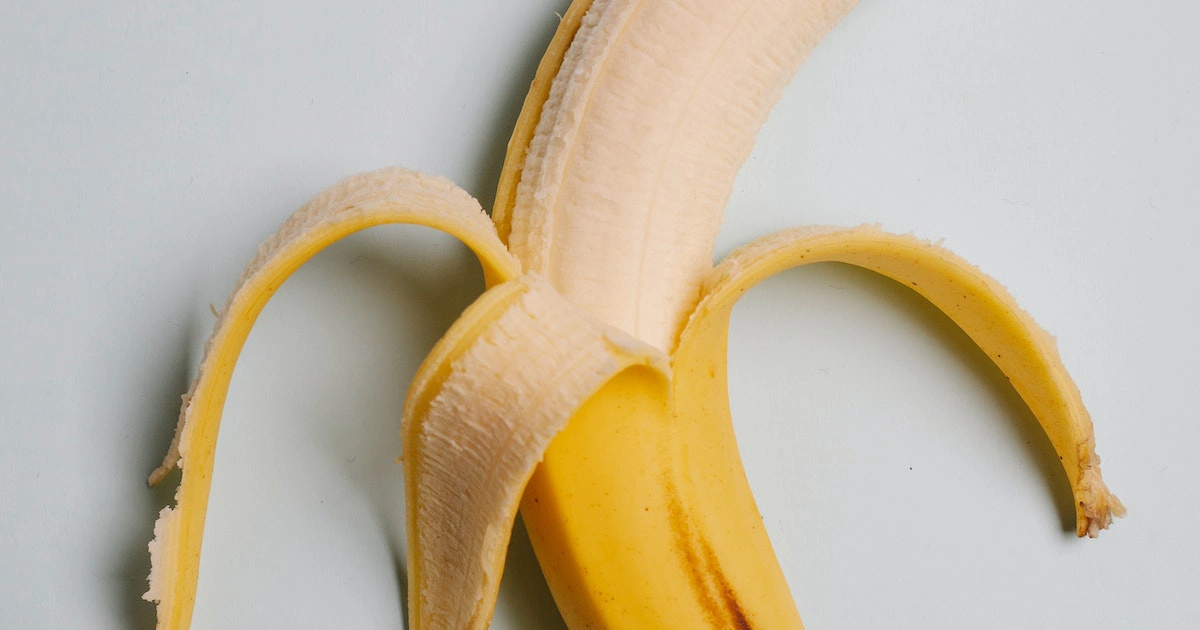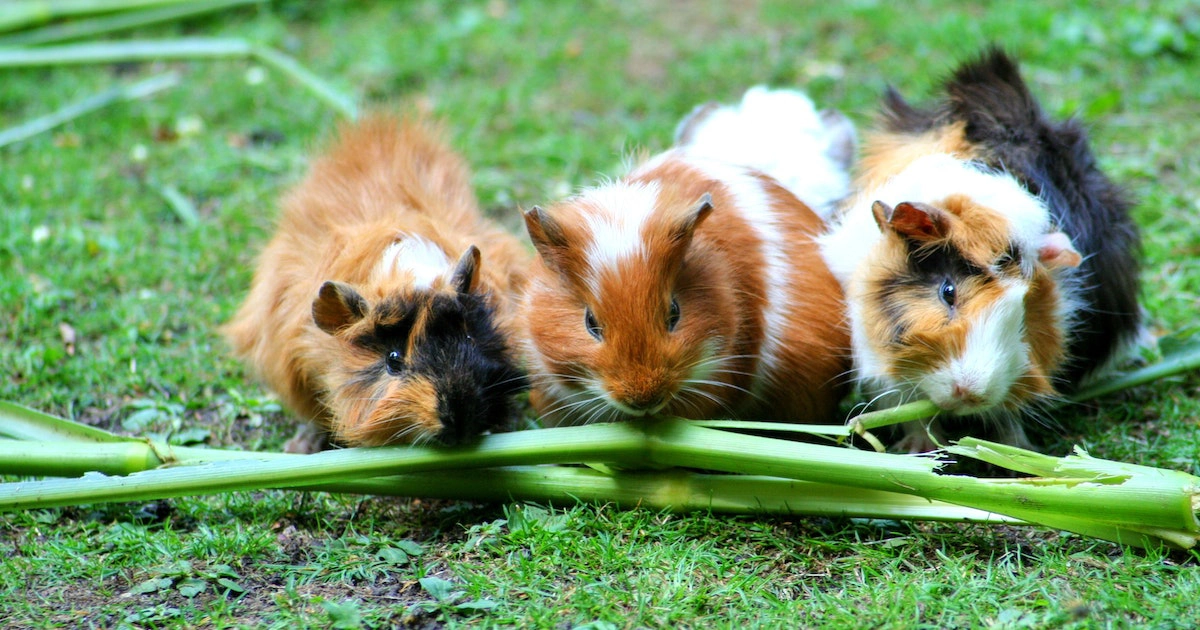As responsible Guinea Pigs pet owners, it’s crucial to ensure that our furry companions receive a balanced and appropriate diet. When it comes to guinea pigs, providing them with the right food is necessary for their overall health and well-being. While guinea pigs and rabbits may seem similar, understanding their diets is important. This blog post will discuss whether guinea pigs can eat rabbits and its nutritional effects.
Can You Mix Guinea Pig And Rabbit Food?
It is generally not recommended to mix guinea pigs food and rabbit food together. Although there may be a few parallels in the ingredients used, guinea pigs and rabbits have different nutritional requirements. Guinea pigs require higher amounts of vitamin C, which is essential for their health. Most rabbit foods do not provide adequate levels of vitamin C for guinea pigs. Mixing the two types of food can lead to imbalances in their diet. Potentially causing nutritional deficiencies or health problems for both animals. It is excellent to provide each pet with a specific diet formulated for their unique needs to ensure optimal health and well-being.
Critical Differences in Nutritional Needs:
Despite some ingredient overlap, in rabbit food and guinea pig pellets, there are crucial differences in the specific nutritional requirements of these two species. Guinea pigs, for instance, have a higher need for vitamin C compared to rabbits. Most rabbit food lacks an adequate amount of vitamin C required by guinea pigs, making it an unsuitable choice as their main diet.
Is Rabbit Food Safe For a Guinea Pig?
It is not recommended to feed rabbit food to a guinea pig as their primary diet. However, there may be some similarities in the ingredients used; rabbit food is not formulated to meet the specific nutritional requirements of guinea pigs. Guinea pigs have higher requirements for vitamin C, which is essential for their overall health. Most rabbit foods do not provide adequate levels of vitamin C for guinea pigs, and a deficiency can lead to serious health issues.
The Importance of Vitamin C:
As mentioned earlier, guinea pigs require a daily vitamin C intake to maintain their health. Deficiencies can cause health problems, including joint pain, reduced appetite, weight loss, and a weakened immune system. Therefore, it is vital to ensure that guinea pigs receive their vitamin C from fresh vegetables and fruits, in addition to any specialized guinea pig pellets.
What Happens If Guinea Pigs Eat Rabbit Food?
If guinea pigs eat rabbit food, it can potentially lead to nutritional imbalances and health issues. Rabbit food is specifically formulated to meet the dietary needs of rabbits, which differ from those of guinea pigs. One key difference is the requirement for vitamin C. Unfortunately, most rabbit foods do not contain adequate levels of vitamin C for guinea pigs. Therefore, if guinea pigs consistently consume rabbit food as their primary diet, they may develop vitamin C deficiencies, leading to problems such as weakened immune systems, joint pain, reduced appetite, weight loss, and even scurvy. It is important to give guinea pigs a diet tailored to their specific nutritional requirements to ensure their optimal health and well-being.
What Does A Guinea Pig Need To Eat To Stay Healthy?
Guinea pigs have specific nutritional needs that are crucial for their overall health and well-being. Firstly, they require a high-fibre diet, primarily obtained from fresh hay, which aids digestion and maintains healthy teeth. Guinea pigs can’t make vitamin C on their own, so it is necessary to supply them with this nutrient daily to avoid scurvy. They must consume various fresh vegetables and fruits to meet their vitamin C needs. Additionally, guinea pigs need a moderate amount of protein, which can be obtained from specialized guinea pig pellets. It is vital to avoid overfeeding them with fatty or sugary foods and to provide a consistent supply of fresh, clean water. Monitoring their weight and ensuring a balanced diet is key to promoting their optimal health and longevity. Consulting a veterinarian for specific dietary recommendations is always advisable to meet the individual needs of your guinea pig.
What Foods Should Guinea Pigs Eat Daily?
Guinea pigs have specific dietary requirements, and providing them with a well-rounded and nutritious diet is essential for their overall health. There are several foods that guinea pigs should eat daily to meet their nutritional needs. Firstly, fresh, high-quality hay should be available at all times as a vital source of fibre, which aids in digestion and helps wear down their continuously growing teeth. Guinea pig pellets formulated specifically for their needs should also be provided daily. These pellets contain essential vitamins and minerals, as well as a balanced amount of protein. Fresh water should always be available, and it is recommended to change it daily to maintain its freshness. By offering a balanced combination of hay, pellets, vegetables, and fruits, you can help ensure that your guinea pig receives the necessary nutrients for their optimal health and well-being.
Do Guinea Pigs Eat Milk?
Guinea pigs are known to be herbivores, which means they mainly feed on vegetables, fruits, and hay. However, it may seem like the best idea to supplement their diet with milk or other dairy products, and it is not recommended for guinea pigs to consume these kinds of food.
Milk and dairy products have lactose that can be difficult for guinea pigs to digest. As a result, feeding them these foods results in digestive problems such as diarrhoea or bloating.
If the pet owner wants to provide their guinea pig with a varied diet besides hay and fresh produce without risking their health, there are specific threats made explicitly for small animals like guinea pigs that you can give them in moderation. However, always consult your veterinarian before introducing new foods into your diet.
Regarding rabbit food, while it may be tempting to share meals between pets of similar species or size ranges. Rabbit food generally has different nutritional values compared to what’s suitable for guinea pigs. Guinea pig diets require more vitamin C as they cannot produce it on their own due to lack of liver enzymes – thus making commercially available feeds specifically formulated for Guinea Pigs the best option instead of sharing meals between pets – this also ensures adequate nutrition requirements are met by your pet(s).
Do Guinea Pigs Eat Rice?
Guinea pigs are herbivorous rodents that require a balanced diet to remain healthy. Their diet mainly consists of hay, fresh vegetables, and pellets specially formulated for them. While guinea pigs can consume an extensive range of fruits and vegetables, it’s important to ensure that they’re safe for consumption and provided in moderation.
When it comes to rice, guinea pigs can consume small amounts as an occasional treat. However, it’s not recommended as a staple food item since it lacks the essential nutrients required for their growth and development. Rice is rich in carbohydrates that can lead to obesity if fed excessively.
As for rabbit food, some brands may contain similar ingredients to guinea pig food. The nutritional requirements differ between the two animals. Feeding your guinea pig rabbit food could result in malnourishment as rabbits require higher levels of fibre than guinea pigs do. It’s best to stick with specially-formulated pellets made specifically for guinea pigs or consult with a veterinarian before making any changes to your diet.
What Not To Feed A Guinea Pig?
It’s important to remember that guinea pigs have specific nutritional needs and can’t eat everything. One food to avoid feeding guinea pigs is rabbit food. Although both rabbits and guinea pigs are herbivores, their nutritional requirements differ significantly.
Rabbit food typically contains too much calcium and insufficient vitamin C for a guinea pig’s diet. Guinea pigs require a steady supply of vitamin C as they cannot produce it themselves, unlike rabbits. Feeding your guinea pig rabbit food can lead to health issues such as urinary tract problems or scurvy.
Other foods that should be avoided include anything high in sugar or fat, processed human snacks, dairy products, and meat-based products. Instead, use fresh vegetables like carrots or cucumbers and hay for fibre intake. It’s always preferable to consult with a veterinarian before introducing any new foods into your guinea pig’s diet.
What Is Guinea Pig Most Favourite Food?

Guinea pigs require certain nutrients to stay healthy. While they may enjoy some types of rabbit food, it is not advised to provide them solely on this diet. Guinea pigs need high-quality hay, fresh vegetables, and specially formulated pellets that are fortified with vitamin C.
Their favourite foods include hay, orchard grass, dark leafy greens like kale or spinach, and crunchy vegetables like carrots or bell peppers. It’s important to introduce new foods slowly to avoid digestive issues and monitor their intake, as overfeeding can lead to obesity.
While rabbits and guinea pigs may seem similar in terms of diet, they have different nutritional needs. Feeding your guinea pig rabbit food can lead to deficiencies in vitamin C and other essential nutrients. It’s best to stick with a well-balanced diet designed explicitly for guinea pigs.
Can Guinea Pigs Eat Eggs?
Guinea pigs’ diet should consist primarily of hay, fresh vegetables, and fruits. Although they require a small amount of protein, it is not recommended to feed them eggs. Eggs contain high amounts of cholesterol and fat, which can be harmful to guinea pigs’ digestive systems. Additionally, eggs are not a natural part of their diet in the wild. Guinea pig-specific pellets and fresh produce should always be the main source of nutrition for these small animals.
If you’re unsure about what foods your guinea pig can safely consume, consult with a veterinarian or reputable online resource dedicated to guinea pig care.
Can Guinea Pigs Eat Meat?
Guinea pigs should not consume meat in any form. Their digestion systems are adapted to break into material from plants, and feeding them protein-rich food like meat can lead to health complications. Opt for a diet consisting of hay, fresh fruits and vegetables, and pellets specifically formulated for guinea pigs.
Feeding your guinea pig rabbit food may be tempting due to the similarities between the two animals’ dietary needs. However, it’s important to note that rabbits require a higher level of protein than guinea pigs do to maintain their muscle mass. Additionally, some rabbit foods contain ingredients that are harmful or toxic to guinea pigs. Stick to a diet tailored specifically for your furry friend’s needs.
Always consult with a veterinarian before making significant changes in your pet’s diet or if you notice any unusual behaviour or symptoms indicating health problems.
Can Guinea Pigs Eat Tomato?
Tomatoes are a nutritious food that many people enjoy. However, it’s essential to know whether or not your pet guinea pig can safely eat them. The good thing is that guinea pigs are capable of consuming tomatoes, but only in moderation and with some precautions.
Tomatoes have high levels of vitamin C; this is crucial for guinea pigs because they can’t make it on their own. However, tomatoes also have a high acidic content that can cause digestive problems if fed too much. It’s recommended to limit tomato intake to no more than one small cherry tomato per day for adult guinea pigs and even less for younger ones.
When feeding your guinea pig tomatoes, make sure to avoid any green parts as they contain solanine – a toxic substance that could harm your pet’s health. Additionally, always wash the tomato thoroughly before offering it to your furry friend. As pesticides or bacteria may be present on the skin. Finally, keep in mind that tomatoes should not replace their regular diet of hay and fresh vegetables like carrots or leafy greens – they should only serve as an occasional treat.
While guinea pigs can eat tomatoes in moderation and with proper preparation, they should never be the natural source of energy in their diet. Always consult with your vet before giving new foods to your pet’s diet or ensuring they are receiving adequate nutrition daily.
Can Guinea Pigs Eat Banana?

Guinea pigs are herbivores, meaning that their diet consists of plant-based foods. Banana is a safe fruit for guinea pigs to consume in small quantities.
Bananas are an excellent source of the nutrients fibre and vitamin C, both of which are essential for guinea pigs. However, they additionally have high levels of sugar and starch, which, when ingested in excess, can cause digestive issues. It’s recommended that you only offer your guinea pig small pieces of ripe banana as an occasional treat. Always consult with a veterinarian or do thorough research before changing your pet’s diet.
Can Guinea Pigs Drink Boiled Water?
Guinea pigs are small and delicate animals that require special care for their diet. Water is a vital part of their daily intake, so it’s natural for pet parents to wonder if boiled water is a safe option for them. Boiling water removes any impurities or bacteria present in it, making it a more hygienic option for guinea pigs. However, serving hot water directly to your furry friend can be dangerous as they have sensitive tongues and may burn themselves.
It’s important to let the boiled water cool down before serving it to your guinea pig. Room temperature or slightly warm water is the best option as they can quickly drink it without causing any harm to their mouth or digestive system. Regularly replace the water in your pet’s receptacle and avoid giving them tap water with high levels of chlorine or fluoride.
Regarding food, rabbits and guinea pigs have different dietary requirements despite being similar-looking pets. While some types of rabbit food may contain ingredients suitable for guinea pigs. Not all rabbit food is safe for them. Guinea pigs need vitamin C in their diets as they cannot produce this nutrient naturally as other animals do. Therefore, always check with your veterinarian before introducing new foods into your guinea pig’s diet or stick with specially formulated pellets explicitly designed for them.
Can Guinea Pigs Eat Cucumber?
Guinea pigs require a diet with fibre and vitamin C. So, it’s essential to provide them with fresh vegetables like cucumber to supplement their diet. Cucumber is a safe option for guinea pigs, but it should be given only in moderation.
Cucumbers contain a significant amount of water, which can lead to diarrhoea in guinea pigs if consumed excessively. Thus, it’s best to limit the serving size to one or two slices per day. Additionally, make sure that you wash the cucumber thoroughly before feeding it to your pet. Cucumbers can be included in your guinea pig’s diet as an occasional treat but shouldn’t replace their main source of nutrition – hay and pellets. Along with cucumber, you can also feed them other veggies such as carrots, lettuce leaves, kale and spinach in limited quantities for optimal health benefits.
Is Anything Poisonous To Guinea Pigs?
All foods are not safe for guinea pigs to consume. Some foods can be poisonous to guinea pigs if they overeat or on a regular basis. For instance, onions and garlic contain compounds that can rupture red blood cells in guinea pigs and cause anaemia.
Another food that is poisonous to guinea pigs is chocolate. Chocolate has a theobromine which can cause seizures, heart failure, and even death in guinea pigs if ingested in large quantities. Moreover, avocadoes contain persin, which is toxic to guinea pigs when consumed excessively.
As for rabbit food, it’s generally okay for guinea pigs to eat it as long as it doesn’t contain ingredients that are harmful to them. But since rabbits have different nutritional requirements than guinea pigs do. It’s best not to rely on rabbit food as the main source of nutrition for your pet piggy. Instead, opt for fresh veggies and fruits recommended by veterinarians or animal nutritionists to ensure a balanced diet for your beloved furry friend.
Conclusion
In conclusion, guinea pigs should not be fed with rabbit food as it does not provide the appropriate nutritional requirements of guinea pigs. Rabbit food typically has a high amount of protein and fibre, which can cause digestive problems for guinea pigs. Unlike rabbits, guinea pigs require vitamin C in their diets as they cannot produce it on their own. This nutrient is crucial to maintain their overall health and prevent scurvy.
It is essential that your pet guinea pig receives a balanced diet consisting of hay, fresh vegetables, fruits, and pellets sold commercially that are intended for them. By feeding your furry companion the proper sustenance, you can ensure their health and happiness for years. If you have any concerns about your pet’s food or health, you should always talk to a vet.
FAQ
